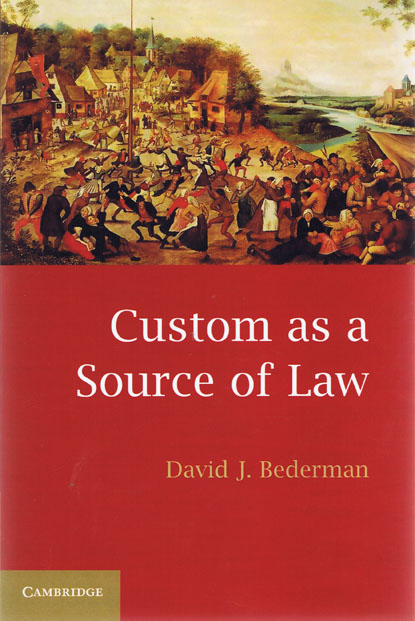
A central puzzle in jurisprudence has been the role of custom in law. Custom is simply the practices and usages of distinctive communities.
But are such customs legally binding? Can custom be law, even before it is recognized by authoritative legislation or precedent? And, assuming that custom is a source of law, what are its constituent elements? Is proof of a consistent and long-standing practice sufficient, or must there be an extra ingredient - that the usage is pursued out of a sense of legal obligation, or, at least, that the custom is reasonable and efficacious?
And, most tantalizing of all, is custom a source of law that we should embrace in modern, sophisticated legal systems, or is the notion of law from below outdated, or even dangerous, today? This volume answers these questions through a rigorous multidisciplinary, historical, and comparative approach, offering a fresh perspective on custom's enduring place in both domestic and international law.